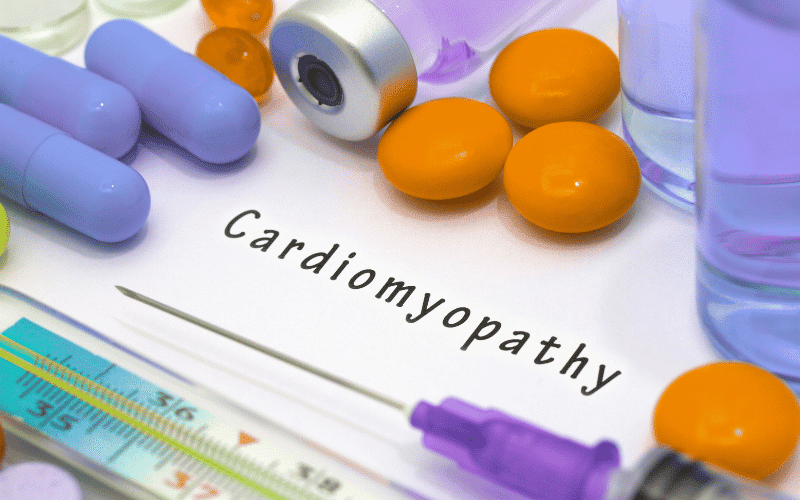Frequently Asked Questions About Cardiomyopathy

What exactly is cardiomyopathy?
Cardiomyopathy is a general term for diseases of the heart muscle, where the walls of the heart chambers have become stretched, thickened, or stiff. This affects the heart’s ability to pump blood around the body effectively.
Can you die from cardiomyopathy?
Yes, cardiomyopathy can be life-threatening and can lead to serious complications, including heart failure, blood clots, heart valve issues, and sudden cardiac arrest. However, with early diagnosis and appropriate management, many people with cardiomyopathy lead a full and active life.
Can cardiomyopathy be cured?
Currently, there is no cure for cardiomyopathy. However, treatments — including lifestyle changes, medications, and surgical interventions — can help manage the symptoms and halt the progression of the disease, improving the patient’s quality of life and lifespan.
Is cardiomyopathy a form of heart disease?
Yes, cardiomyopathy is a form of heart disease. It specifically refers to diseases of the heart muscle. There are several types of cardiomyopathy, including dilated cardiomyopathy, hypertrophic cardiomyopathy, and restrictive cardiomyopathy.
Can exercise cause cardiomyopathy?
While regular exercise is typically good for the heart, very intense and prolonged exercise over many years can strain the heart and potentially lead to conditions like cardiomyopathy in some people. However, it’s important to note that this is quite rare, and exercise is beneficial for most people. If you have any concerns, you should consult with your doctor.
Is cardiomyopathy a genetic disease?
Certain types of cardiomyopathy, like hypertrophic cardiomyopathy, can run in families and are caused by genetic mutations. However, not all forms of cardiomyopathy are inherited, and the disease can also be caused by factors like long-term high blood pressure, heart tissue damage from a heart attack, or chronic rapid heart rate.
Conclusion: Recognizing the Early Signs of Cardiomyopathy
Cardiomyopathy, a disease that affects the heart muscle leading to a weakened ability of the heart to pump blood efficiently, can present in many ways. Recognizing the early signs of cardiomyopathy, such as unexplained fatigue, shortness of breath, swelling in the legs, ankles, and feet, dizziness or fainting, rapid, fluttering or pounding heartbeats, difficulty lying flat, chest pain or discomfort, lack of appetite or nausea, frequent urination, and persistent cough or wheezing, can significantly help in early detection and management of the condition.
As this comprehensive overview demonstrates, these symptoms can often be subtle or mistaken for other conditions, underscoring the importance of consulting with a healthcare provider when changes to your health occur. Early detection is paramount in managing cardiomyopathy effectively and can dramatically improve the prognosis and quality of life for those affected by this heart condition.
Despite there being no definitive cure for cardiomyopathy at present, numerous treatments can manage symptoms and prevent the disease from worsening, allowing many affected individuals to lead a full and active life.
This informative piece should serve as a reference point for those keen on understanding cardiomyopathy. However, it should not replace professional medical advice, diagnosis, or treatment. Always seek the guidance of your physician or other qualified health professional with any questions you may have regarding a medical condition.
In conclusion, when it comes to your health, early detection is key, and awareness of these early signs of cardiomyopathy could be a lifesaver. Be vigilant, listen to your body, and never hesitate to seek medical advice when needed.